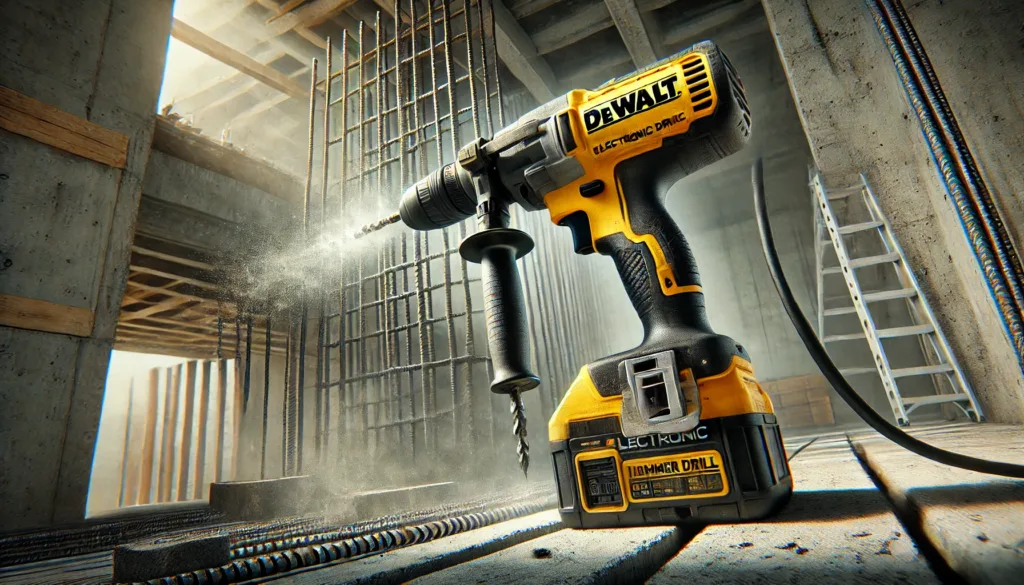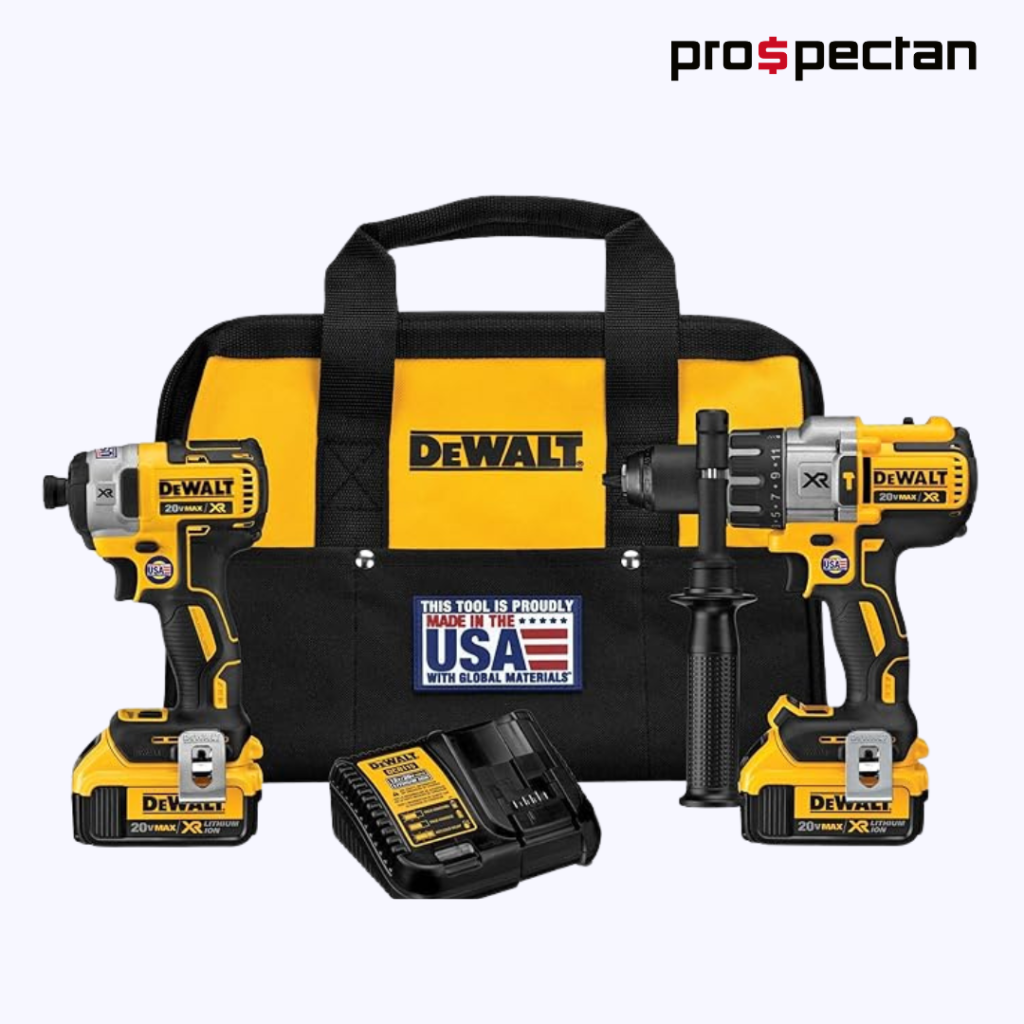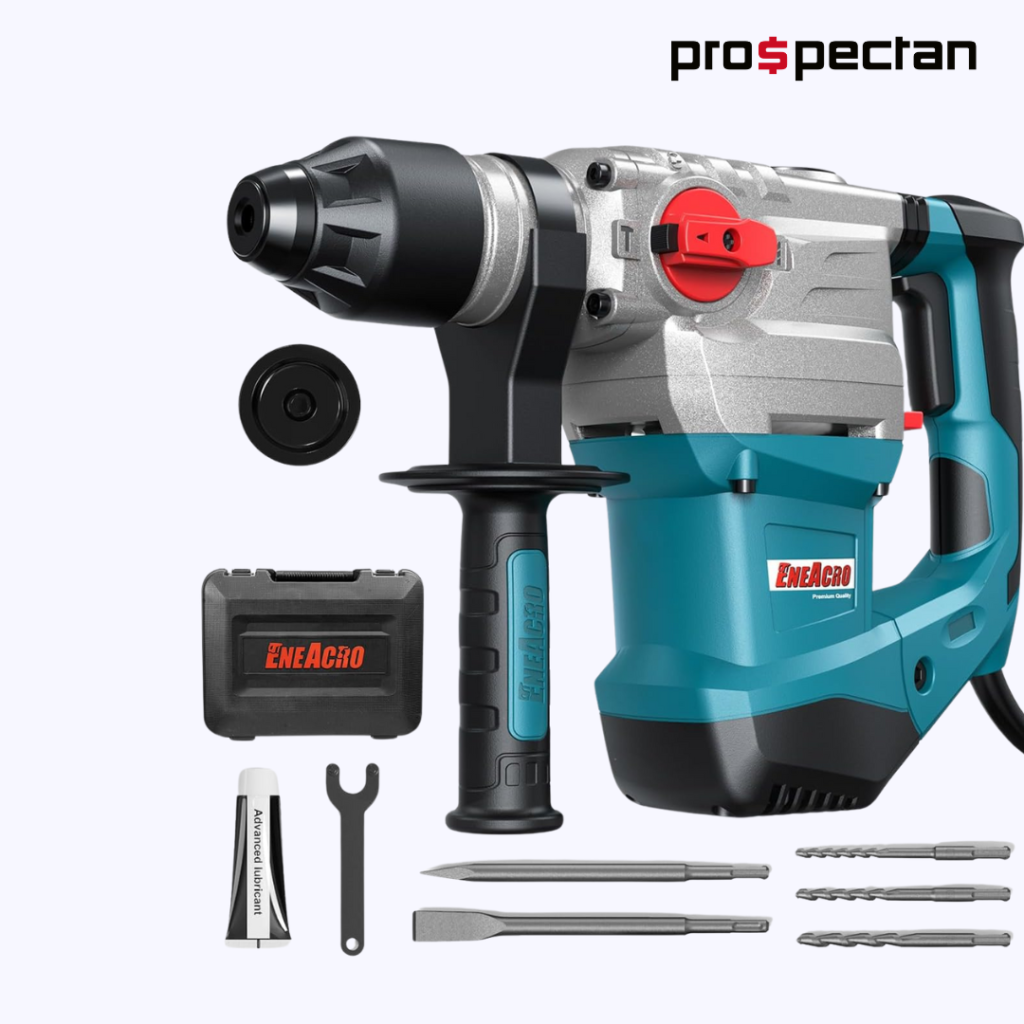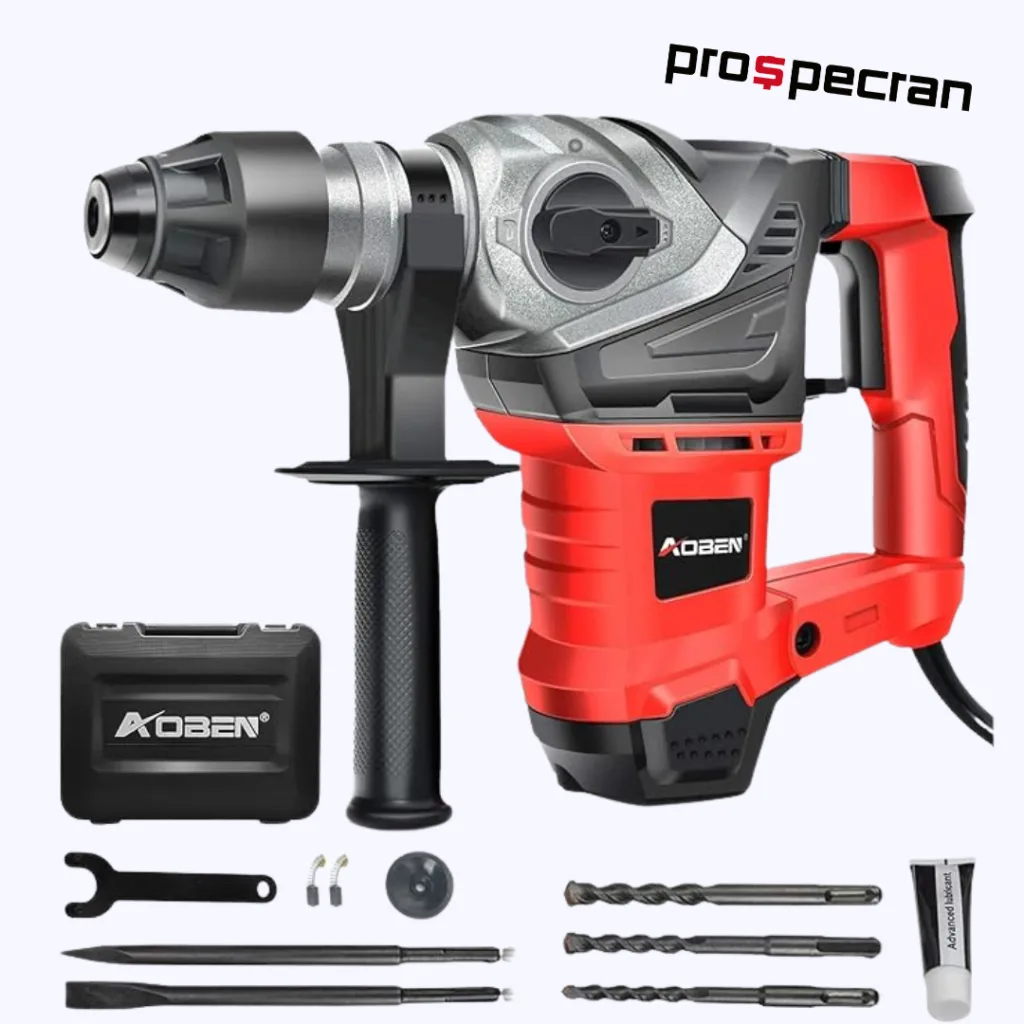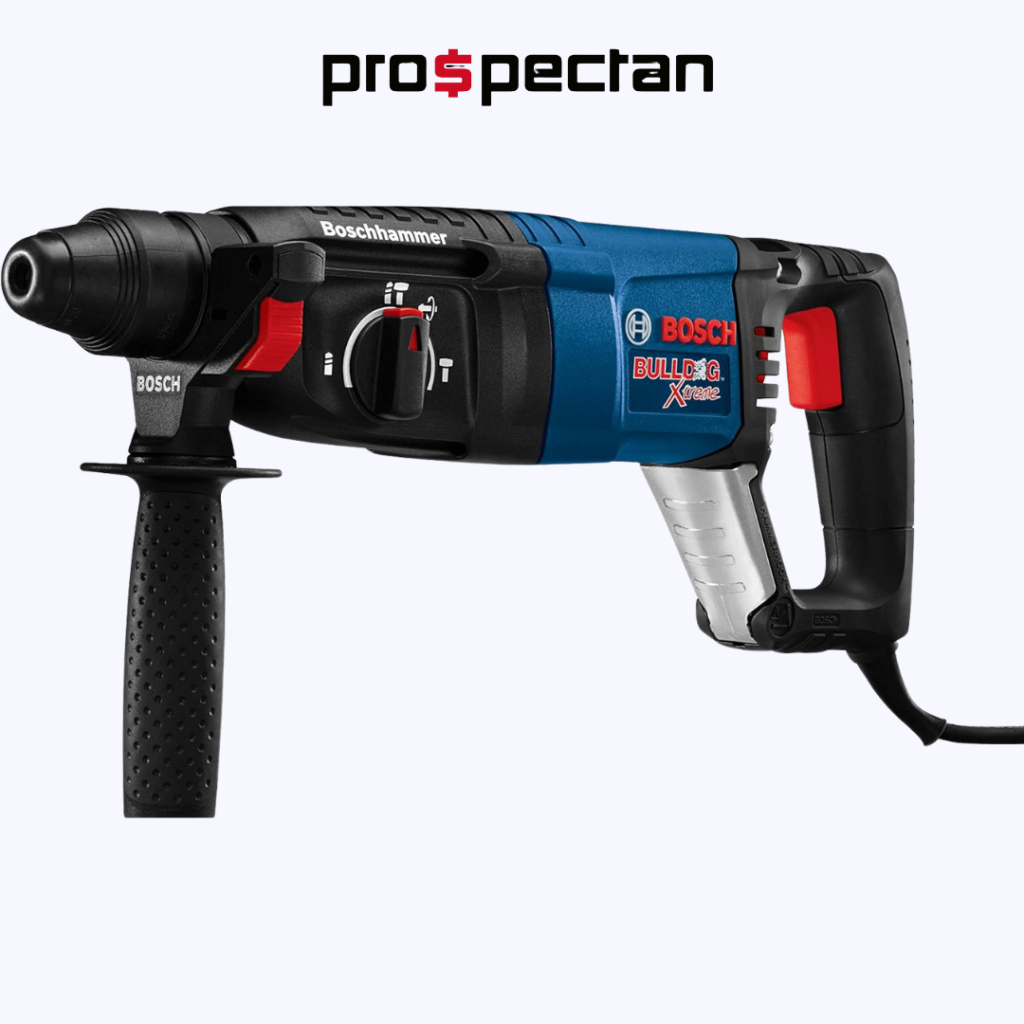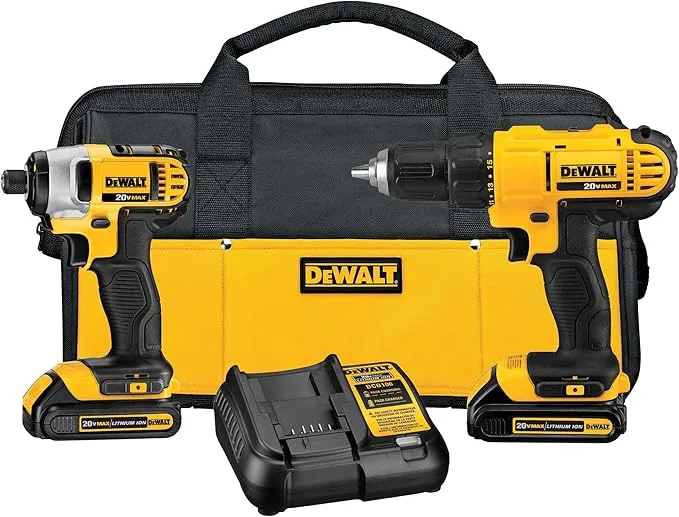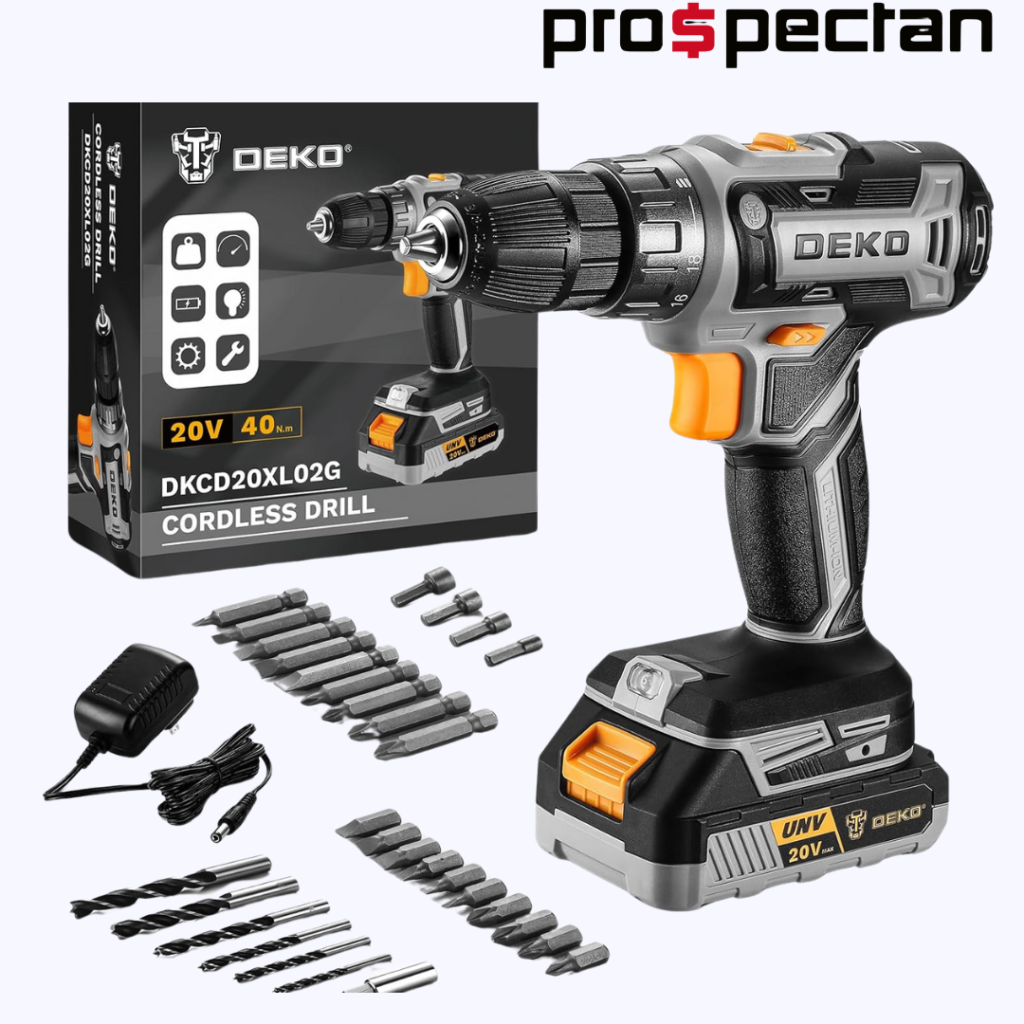Introduction
A hammer drill is one of the most powerful tools you can add to your toolkit, especially for tasks involving hard surfaces like concrete or masonry. Whether you’re a DIY enthusiast or a professional contractor, understanding the various features and capabilities of hammer drills can make a world of difference. In this guide, we’ll dive into everything you need to know about buying the best hammer drill for your needs, from understanding its core functions to choosing the right model for different applications.
What is a Hammer Drill?
A hammer drill is a power tool designed specifically to drill into tough surfaces like concrete, stone, and brick. It combines rotary motion with a hammering action to break up hard materials and drill deeper with less effort. This powerful tool is different from standard drills, as it can tackle dense surfaces without overloading or stalling, making it an essential piece for heavy-duty projects.
Types of Hammer Drills
Hammer drills come in various types, each suited to specific applications. The most common types are corded hammer drills, cordless hammer drills, and rotary hammer drills. Corded models provide continuous power and are ideal for long-term, high-power projects. Cordless models, on the other hand, offer more flexibility and are perfect for smaller tasks. For exceptionally tough materials, a rotary hammer drill provides more power and deeper impact, often favored in professional settings.
Key Features to Look For in a Hammer Drill
When shopping for a hammer drill, several features can affect performance. Look for power (measured in amps or volts), which directly impacts the drill’s ability to handle hard materials. Variable speed settings allow for greater control, especially when switching between materials. Impact per minute (IPM) determines the hammering action, so a higher IPM often translates to better performance on harder surfaces. Lastly, features like adjustable side handles and depth gauges improve precision and ease of use.
Benefits of Using a Hammer Drill
Hammer drills provide a unique combination of speed and power, which makes them ideal for heavy-duty drilling tasks. They save significant time on projects that would be challenging with a standard drill. By creating small, repetitive impacts, hammer drills can penetrate hard surfaces without as much manual pressure, reducing strain on the user. Additionally, many hammer drills have settings that allow them to function as a standard drill, adding versatility to your tool collection.
Hammer Drill Power Sources: Corded vs. Cordless
The choice between a corded and cordless hammer drill depends on the nature of your projects. Corded hammer drills offer steady, uninterrupted power, making them better suited for longer or more intense tasks. Cordless hammer drills provide greater mobility and are particularly convenient for outdoor or high-reach projects, although their runtime is limited by battery life. Brands like DEWALT, Makita, and Bosch offer both corded and cordless options to fit a range of preferences and needs.
Drilling Through Concrete and Other Hard Surfaces
Concrete and masonry are among the toughest surfaces to drill through, but a hammer drill is designed for the job. When drilling into concrete, ensure your hammer drill has enough power (ideally above 5 amps for corded models) and high IPM. Using a carbide-tipped drill bit will also make a difference, as these are designed to withstand the impact and resist heat generated by the drilling process.
Safety Tips for Using a Hammer Drill
Safety is essential when operating a hammer drill, as the power and impact involved can be intense. Always wear eye protection to guard against debris, and hearing protection to reduce exposure to noise. Using both hands to operate the drill is recommended for stability, especially on tougher surfaces. Additionally, take breaks when necessary to prevent overheating the motor and ensure your drill’s components are functioning optimally.
Top Brands and Models to Consider
Several brands stand out in the hammer drill market due to their durability, power, and advanced features. DEWALT’s 20V MAX XR Hammer Drill is known for its exceptional battery life and compact design, ideal for cordless convenience. Makita’s XPH07T Cordless Hammer Drill provides professional-grade performance with high torque, while Bosch’s Bulldog Xtreme Rotary Hammer Drill is a favorite for intense masonry tasks. Each of these models offers distinct benefits, making them great options for a range of uses.
Choosing the Best Hammer Drill for Your Needs
When choosing a hammer drill, consider the types of materials you’ll be working with, as well as the typical scope of your projects. For smaller household projects, a lightweight cordless hammer drill might be ideal, whereas larger construction jobs may require a more powerful, corded rotary hammer drill. Pay attention to factors like battery life (for cordless models), impact strength, and drill speed settings, all of which impact the tool’s efficiency.
Maintenance and Care for Your Hammer Drill
To extend the life of your hammer drill, regular maintenance is essential. After each use, clean the drill bit and remove dust from the drill’s vents. For models with removable brushes, replacing these periodically ensures optimal motor function. Cordless hammer drills also benefit from proper battery care; keeping batteries charged and storing them at room temperature helps maintain their lifespan.
Hammer Drill Accessories to Enhance Performance
Using the right accessories can significantly enhance your hammer drill’s performance. Carbide or diamond-tipped bits are excellent for penetrating concrete, brick, and stone. A depth gauge ensures consistent hole depths, while a stabilizing handle provides extra control for precision drilling. Investing in quality accessories from trusted brands will maximize the versatility and efficiency of your hammer drill.

